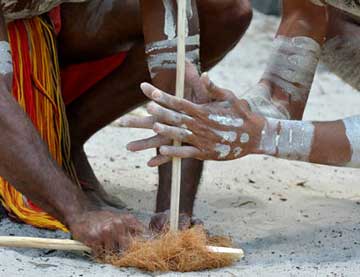Banner Image

Australia Day is a significant national celebration that marks the anniversary of the arrival of the First Fleet at Sydney Cove in 1788. While it is a day of festivities and national pride for many Australians, it's crucial to recognise that for Indigenous Australians, this day carries a different significance. For Aboriginal and Torres Strait Islander peoples, Australia Day is a reminder of the loss of their cultures, lands, and families during colonisation.
In this blog, we'll explore the historical context of Australia Day from an Indigenous perspective and discuss ways in which we can celebrate the nation's diversity while being sensitive to the pain and grief experienced by Aboriginal and Torres Strait Islander communities.
Understanding Australia Day's History
Australia Day's history is deeply intertwined with the arrival of British settlers, which had devastating consequences for the Indigenous peoples who had inhabited the continent for tens of thousands of years. The arrival of the First Fleet marked the beginning of dispossession, violence, and the loss of cultural heritage for Aboriginal and Torres Strait Islander communities.
The impact of colonisation is felt to this day, with many Indigenous Australians viewing Australia Day as "Invasion Day" or "Survival Day." It's a day of mourning for the atrocities committed against their ancestors and a reminder of the ongoing struggles for recognition, justice, and reconciliation.
Being Sensitive and Inclusive
As we approach Australia Day, it's essential to foster an environment of understanding, empathy, and inclusivity. Here are some ways we can be more sensitive to the experiences of Indigenous Australians:
- Acknowledge the Pain: Recognise that Australia Day may evoke pain and trauma for many Indigenous Australians. Be empathetic and acknowledge the historical injustices that continue to affect their communities.
- Learn and Educate: Take the time to educate yourself and others about Australia's history, particularly the impact of colonisation on Indigenous peoples. Understanding the historical context is crucial for fostering empathy and promoting respectful conversations.
- Support Indigenous Voices: Amplify Indigenous voices and perspectives. Listen to their stories, experiences, and aspirations. Supporting Indigenous artists, writers, and activists can contribute to a more inclusive and diverse narrative.
- Engage in Meaningful Dialogue: Foster open and respectful conversations about Australia Day. Engage in discussions that promote understanding and unity, allowing for diverse perspectives to be heard.
- Celebrate Diversity: While acknowledging the pain associated with Australia Day, celebrate the nation's cultural diversity. Embrace the rich tapestry of traditions, languages, and histories that make Australia unique.
Alternative Celebrations
Consider participating in events that promote reconciliation and understanding rather than traditional celebrations. Attend Indigenous-led events, cultural festivals, or community activities that acknowledge the resilience and contributions of Aboriginal and Torres Strait Islander peoples.
Conclusion
Australia Day can be an opportunity for reflection, understanding, and growth. By acknowledging the historical context and pain associated with this day for Indigenous Australians, we can work towards a more inclusive and compassionate society. Let us celebrate Australia's cultural diversity while recognising the importance of acknowledging and addressing the past for a more harmonious future.
